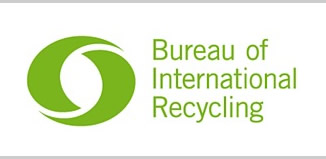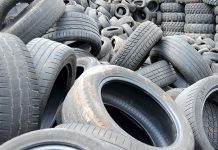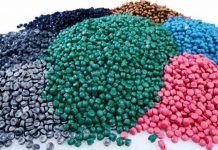“Ringing the Change” featuring Matthew Chamberlain
By Michael Lion, Chairman of the BIR International Trade Council and host of “The Challenge”:
The momentous changes presaged by The London Metal Exchange’s discussion paper proposals is a matter of immense interest and relevance to the global recycling industry where many of its constituency are both active hedge users of the exchange, or even when not doing so are daily impacted as contractual pricing bench mark users of the market, so related Michael Lion, Chairman of the BIR International Trade Council (ITC) and the resident host of BIR’s bi-monthly chat show, “The Challenge” in a special marquee edition featuring the CEO of The London Metal Exchange (LME), Matthew Chamberlain.
Together with resident co-anchor contributors Mark Sellier of Global Metals Network and Murat Bayram of EMR, host Michael Lion engaged Matt Chamberlain in series of crucial key issues emanating from the LME’s discussion paper on their proposals.
A priority of intense interest and concern discussed at the outset was the possibility of changing the margin valuation basis of the current Contingent Variation Margin (CVM) methodology to a Realized Variation Margin (RVM) basis, which could have significant and detrimental implications for trade hedgers, who are heavily dependent on credit lines availability from their brokers, a point that Murat Bayram emphasized was critical to the many small and medium sized companies in the recycling community. Matt Chamberlain explained both the respective rationales for retaining or changing the LME’s approach and given the concerns expressed also by Mark Sellier in terms of both accounting costs and credit line impairment militated convincingly in favor of the current CVM method. In summary, Mr Lion noted that the global metals industry was overwhelmingly of the view that maintaining the current CVM margining model was crucial and Mr Chamberlain stated that the LME was indeed still very open to the possibility of accepting that position.
Turning to the topic that Mr Lion described as the headline-grabbing issue of the possible permanent closure of the LME’s legendary and unique open outcry Ring, he noted that an understandable significant sentimental emotion was attached to this issue, including himself as he and his family have close involvement in the LME since the start of the last century, but that any arguments in favor of maintaining the Ring must be based on persuasive evidence that not only was this best for its users and members but in the long term a more rewarding approach for the Exchange’s owners, The Hong Kong Stock Exchange (HKEx).
Mark Sellier noted that while data quoted by Mr Chamberlain as underscoring the continued or even improved transparency and efficiency of pricing during the Pandemic enforced closure of the Ring had indicated, his concern was that prices determined by activity created by financial and algorithmic participants could at times distort the underlying trade conditions that pertained for accurate global metals prices. This point was taken up by Murat Bayram, who expressed great concern that distortions could have enormous consequences for the trade and industry sector and quoted the recent detailed submission of concerns of the proposed changes that the German metals trade, through its trade body VDM (Verband Deutscher Metallhändler), of which he is a director, had submitted to the LME. Michael Lion added that the integrity and responsibility that VDM had attributed to the LME was a significant consideration for reciprocity of support by the LME, as Mr Bayram noted, the LME has always stated that support of the trade was a priority of their core mission. Mr Chamberlain acknowledged this, but pointed out that the LME was obligated to ensuring demonstrably that a democratic and broad optimal transparency of the pricing activity of its reference pricing was obtained and data suggested that the electronic market might best achieve this. He further noted nobody wanted to be the one for finally closing the Ring after 144 years, but that all aspects needed to be realistically considered.
Mr Lion sought Mr Chamberlain’s thoughts on the issue of regulatory “equivalence” issue with the EU currently a matter of concern in the financial community of The City of London, and he reassuringly explained that the LME had preemptively taken necessary actions to satisfy its requirements in that regard – as Mr Lion noted, given the VDM’s support by the German trade of the London based LME as their institution of choice the role of the trade in the LME’s future was reassuring.
Turning to the LME’s mission to advance sustainability, Mr Lion hoped that the recycling sector as the epitome of sustainability could, through the closer interaction between BIR and the LME, assist in supporting their objectives and Mr Chamberlain noted that through its ferrous scrap contract and forthcoming UBC aluminium can scrap contract he saw a significant role for recycling from the Exchange’s perspective.
The three resident contributors expressed BIR’s great appreciation for Mr Chamberlain’s highly informative and understanding contributions to the conversation and providing “The Challenge” with the privilege of his engaging with BIR and the recycling sector and hoped that the views expressed would constructively enhance the LME’s current deliberations with which endeavors they wished him and the future of the LME every success.
Source: Bureau of International Recycling (BIR)








